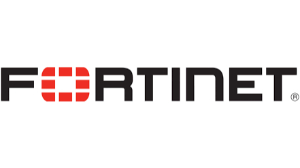
Quick Enquiry
Data center and cloud services are essential components of modern IT infrastructure that enable organizations to store, manage, process, and deliver data and applications. These services provide scalability, flexibility, and cost efficiency, allowing businesses to meet their computing needs while adapting to changing demands. Here’s an overview of data center and cloud services:
Data Center Services:
- Colocation: Colocation services provide physical space in a data center facility for organizations to house their servers, networking equipment, and storage devices. This eliminates the need to maintain an on-premises data center.
- Server Hosting: Data centers offer server hosting services where businesses can lease dedicated servers to host applications and services.
- Managed Services: Data center providers may offer managed services, where they handle tasks such as server management, patching, monitoring, and backups.
- Disaster Recovery (DR): Data centers provide DR services by replicating data and applications to a remote location, ensuring business continuity in case of disasters.
- Backup and Storage: Data centers offer secure storage solutions for data backups and archiving, ensuring data integrity and availability.
- Network Services: Data centers provide network connectivity, including internet access, routing, and load balancing.
- Private Cloud: Some data centers offer private cloud solutions, which are dedicated environments with virtualized resources for a single organization.
Cloud Services:
- Infrastructure as a Service (IaaS): IaaS provides virtualized computing resources, including virtual machines, storage, and networking, on a pay-as-you-go basis.
- Platform as a Service (PaaS): PaaS offers a platform for developers to build, deploy, and manage applications without managing the underlying infrastructure.
- Software as a Service (SaaS): SaaS delivers software applications over the internet, allowing users to access them from anywhere without local installations.
- Public Cloud: Public cloud services are provided by third-party vendors and are available to multiple customers. Examples include Amazon Web Services (AWS), Microsoft Azure, and Google Cloud Platform (GCP).
- Private Cloud: Private cloud services are dedicated to a single organization, offering greater control, security, and customization.
- Hybrid Cloud: Hybrid cloud combines both public and private cloud environments, allowing organizations to leverage the benefits of both while managing data and workloads across them.
- Multi-Cloud: Multi-cloud strategies involve using services from multiple cloud providers to avoid vendor lock-in and optimize costs and performance.
- Serverless Computing: Serverless platforms allow developers to build and deploy applications without managing servers, as the cloud provider handles infrastructure scaling.
- Containers and Kubernetes: Cloud services offer containerization solutions like Docker and container orchestration platforms like Kubernetes to streamline application deployment.
- Cloud Security and Compliance: Cloud providers offer security measures and compliance certifications to ensure data protection and regulatory compliance.
Data center and cloud services enable organizations to leverage the power of scalable computing resources, improve efficiency, and innovate quickly while reducing the need for extensive physical infrastructure maintenance. The choice between data center and cloud services depends on factors such as scalability requirements, budget, security considerations, and specific business needs This post is sponsored by our partners Wigs
Our Proud Partners




































